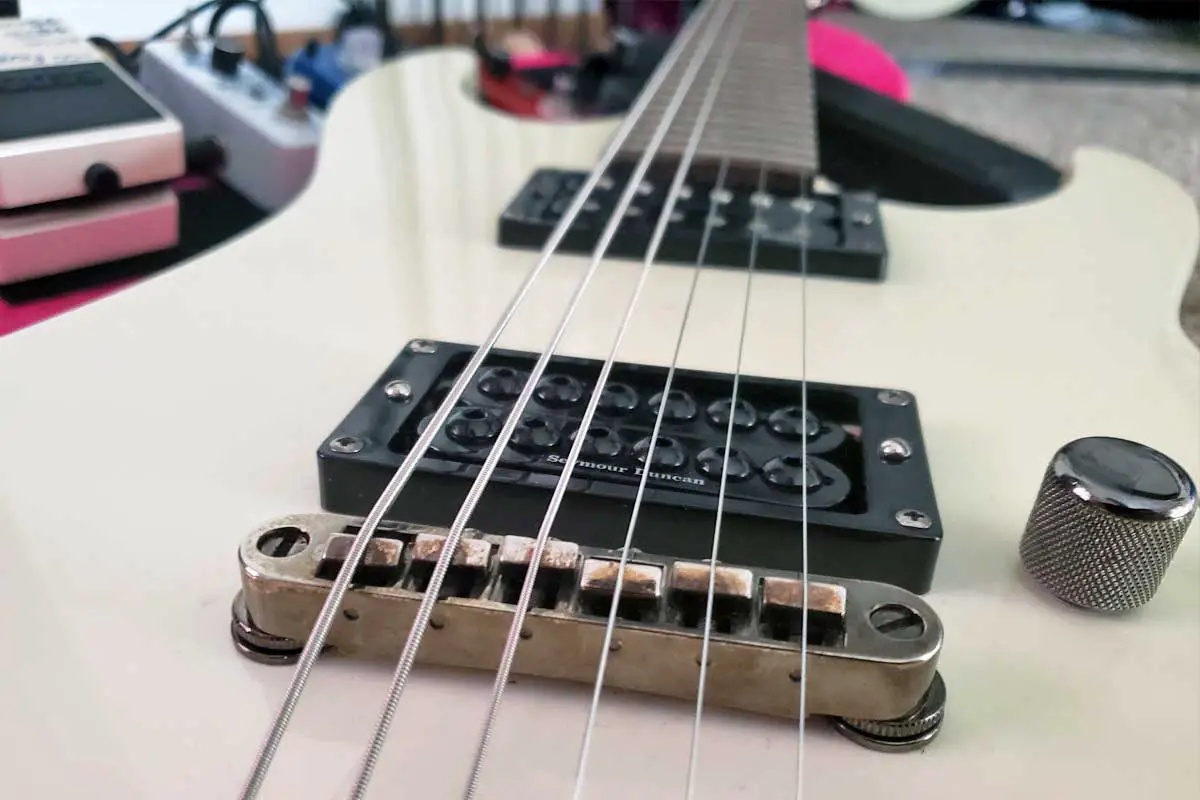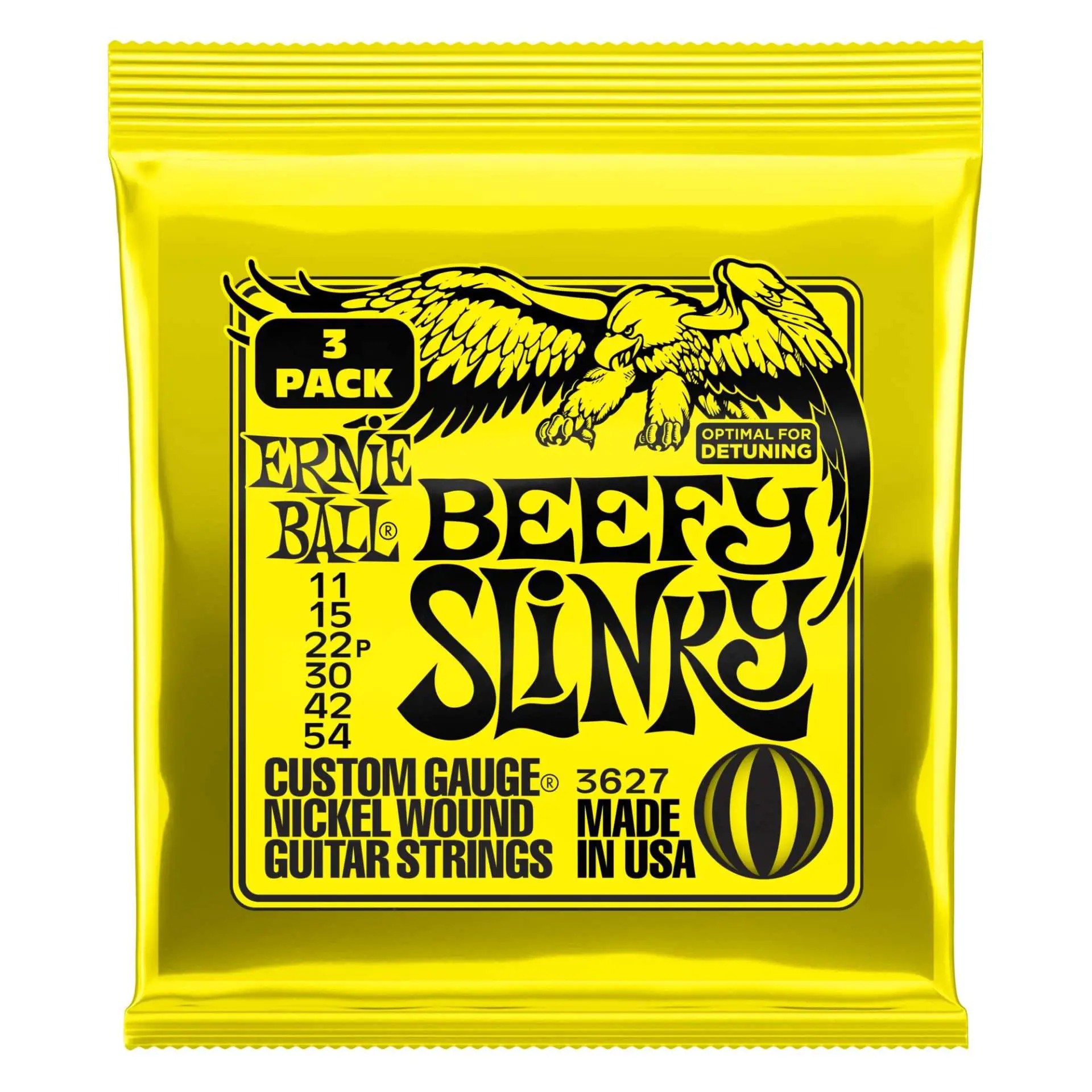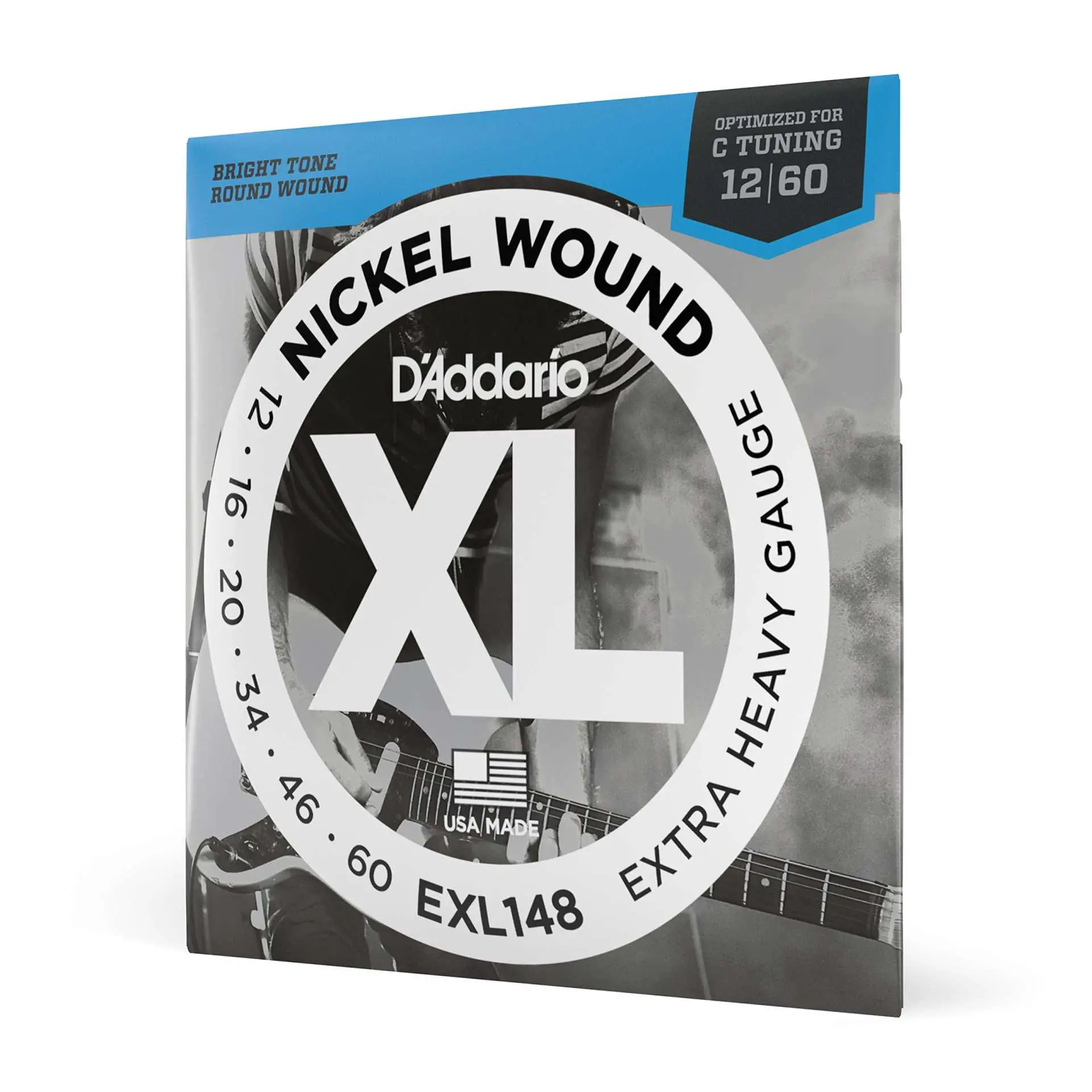Ever felt like your guitar’s gone through puberty overnight? That’s the sonic transformation Drop C tuning can bring. But here’s the catch: without the right strings, your axe might sound more like a soggy rubber band than the thunderous beast you’re aiming for. The best guitar strings for Drop C are the unsung heroes of the metal and hard rock world, turning your six-string into a roaring monster that would make even System of a Down and Deftones nod in approval.
But finding that sweet spot between tension and tone is like walking a tightrope – too light, and you’re flapping in the wind; too heavy, and you might as well be playing telephone wires. Ready to dive into the deep end of the string world and emerge with a sound that’ll shake the foundations of your local venue? Let’s explore the strings that’ll have your Drop C & C Standard riffs cutting through the mix like a hot knife through butter.

Top Picks for Drop C Guitar Strings
When tuning down to Drop C, C Standard, or even C# Standard – it’s essential to have strings that can maintain tension and clarity. We’ve curated a selection of strings that excel in sustaining the heavy riffs and lower tunings while preserving tone and playability. Our list includes options designed to deliver durability and performance, ensuring your guitar sounds its best.
One thing to note whoever, is that you might need to make adjustments to your guitar at the nut or bridge in order to accommodate thicker strings. If you are unsure, we recommend checking in with a local luthier or guitar tech for a set-up or to reduce any unwanted noises like string buzz.
Ernie Ball Beefy Slinky Strings

We highly recommend these strings for players needing reliable performance during drop tuning without breaking the bank. The 3-packs are also great if you want to stock up or have several guitars to downtune.
Pros
- Exceptional tuning stability for drop C
- Brings out a full, rich tone
- Long-lasting build with consistent quality
Cons
- Might be too heavy for standard tuning
- Price point is higher compared to some competitors
- Possible overtones due to thicker gauge
After restringing our guitars with the Ernie Ball Beefy Slinky, we noticed a remarkable improvement in sound quality for drop C tuning. The strings provided a full, rich tone that enhanced our playing experience significantly. We were impressed by the balance between the bright high-end and the beefy lows these strings delivered.
We’ve also found their resilience noteworthy. The strings maintained their tone over multiple jam sessions, reducing the frequency of necessary replacements. Their robust construction lent a sense of reliability, which is crucial when you’re in the middle of a performance or recording session.
However, we did notice that they can introduce some overtones, which may not suit everyone’s taste or playing style. While it’s a minor gripe, it’s something we took into account.
DR Strings Drop-Down Tuning (DDT)

We recommend these strings for any guitarist looking to maintain stable tuning in drop C without the need for constant adjustments.
Pros
- Enhances tuning stability dramatically, especially for lower tunings
- The core technology ensures the strings snap into tune quickly
- Remarkably durable for prolonged use and aggressive playing styles
Cons
- May require a setup adjustment for optimal performance
- Slightly pricier than some alternatives
- Limited flexibility which might not suit all playing styles
After recently stringing up my electric with these DR Strings DDTs, I immediately noticed a pronounced improvement in tuning stability. It’s clear these strings are built to handle the brute force of drop C tuning. The wailing riffs and crunchy chords remained crisp and in tune, session after session.
There’s a prevailing sense of assurance knowing that the Accurate Core Technology (ACT) is at work. When I first strummed my guitar after restringing, the strings locked into place rapidly. The absence of incessant retuning gave me more time to focus on my play, not the state of my instrument.
The resilience of these strings stood out. They’ve faced my most relentless picking and bending with an astonishing lack of wear. What’s impressive is how fresh they still sound after hours of jamming — a testament to their robust build quality.
D’Addario XL Extra Heavy Gauge “C Tuning Optimized” Strings

We’ve found these strings to be a solid choice for players looking to get that optimal drop C tuning performance without sacrificing tone or durability.
Pros
- Maintains tonal clarity in drop C tuning
- Resilient against frequent, heavy strumming
- Bright, full sound that enhances playing experience
Cons
- Might be too tight for some playing styles
- Extra heavy gauge isn’t suitable for all guitars
- Can feel stiff initially to some players
From the moment we strung our guitar with these D’Addario XL Nickel Electric Strings, the difference was palpable. Optimized explicitly for C tuning, these strings held tune impeccably, even after hours of aggressive riffs and bends. The sturdy feel under our fingers told us they were built to withstand a beating, affirming their durability.
The tonal quality didn’t go unnoticed. The strings offer a bright, clear sound that didn’t muddy even when we cranked up the distortion. The versatility shown across various musical styles was commendable, whether we plucked clean, melancholic melodies or shredded through a metal riff.
The extra heavy gauge brings forth excellent sustain and resonance, ideal for drop C. However, it also demands a certain level of comfort with a stiffer string tension. We’d caution those with a lighter playing style or a preference for more give; that tension can be daunting at first, but it’s a small adjustment period for the control and sound quality you gain.
Buying Guide
Gauge
The thickness of the strings, known as gauge, is crucial for tuning stability and tone in Drop C tuning. We recommend medium or heavier gauges to maintain tension at a lower tuning.
- Light: .010-.046
- Medium: .011-.054
- Heavy: .012-.060
Material
Guitar string material affects tone and durability. Common materials include nickel-plated steel for a balanced tone and phosphor bronze for a warmer sound.
- Nickel-Plated Steel: Balanced tone, suitable for various styles.
- Phosphor Bronze: Warm, rich sound with an emphasis on lower frequencies.
Core
Strings can have either a hex core or a round core, which influences flexibility and tone.
- Hex Core: Tighter tension, bright sound, more durable.
- Round Core: Softer feel, richer harmonic content.
Coating
Coated strings offer longer life by protecting against corrosion, but they may alter the natural tone.
- Coated: Extended lifespan, less frequent changes required.
- Uncoated: Natural tone, may require more frequent replacements.
String Winding
| Winding Type | Description | Tone Quality |
|---|---|---|
| Roundwound | Grooves between windings | Bright |
| Flatwound | Smooth surface | Warm, mellow |
| Halfwound | Middle ground | Balanced |
A proper balance between brightness and warmth should be sought, depending on your tonal preference.
Tuning Stability
For Drop C, ensure the strings offer good tuning stability. Heavier gauges and material choice both contribute to how well strings hold their pitch over time.
